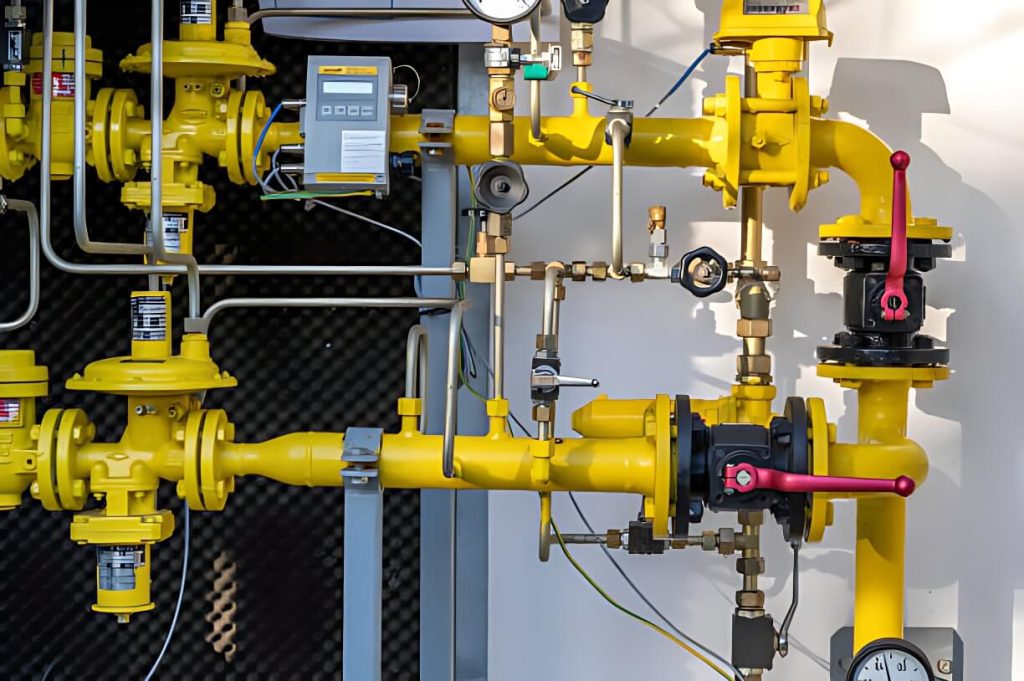Flow measurement is a fundamental aspect of various industries, playing a pivotal role in ensuring efficiency, accuracy, and cost-effectiveness in numerous processes. Achieving precision in flow measurement is of paramount importance as it directly impacts product quality, resource utilization, and overall productivity. In this article, we delve into the world of advanced flow meters and explore how they enable the achievement of unparalleled precision in various applications.
Flow meters are devices used to measure the rate at which a fluid (liquid or gas) flows through a pipeline or conduit. The precise measurement of flow is vital in industries such as manufacturing, pharmaceuticals, petrochemicals, and water treatment. Inaccurate flow measurements can lead to significant consequences, including product defects, wasted resources, and compromised safety.
Types of Flow Meters
Flow meters come in various types, each based on distinct principles and suitable for specific applications. Some common types include electromagnetic Flow meter, ultrasonic flow meters, and mass flow meters.
Electromagnetic Flow Meters utilize Faraday’s law of electromagnetic induction to measure the velocity of conductive fluids like water. They offer high accuracy and are resistant to corrosion, making them suitable for water treatment and wastewater industries.
Ultrasonic Flow Meters rely on the propagation of ultrasonic waves through the fluid to calculate flow velocity. They are non-invasive, making them ideal for applications involving biohazardous or chemically aggressive substances.
Mass Flow Meters measure flow by determining the mass of the fluid passing through a sensor. These meters are highly accurate and are commonly used in industries where mass measurements are critical, such as chemical manufacturing and pharmaceuticals.
Advanced Features of Flow Meters
Advanced flow meters go beyond basic flow measurement by offering additional features that enhance precision. Calibration, material compatibility, and data logging are some of the key aspects.
Calibration is crucial for maintaining the accuracy of flow meters over time. Advanced flow meters often come with self-calibration features or can be easily calibrated on-site, ensuring that measurements remain precise.
Material Compatibility is essential when dealing with corrosive or abrasive fluids. Advanced flow meters are designed with materials that are compatible with a wide range of substances, preventing damage and ensuring long-term accuracy.
Data Logging capabilities allow for the collection and analysis of flow data over extended periods. This not only aids in process optimization but also helps identify irregularities and potential issues, further enhancing precision.
Applications of Advanced Flow Meters
The applications of advanced flow meters are diverse and encompass various industries. In the pharmaceutical sector, precise flow measurements are crucial for drug manufacturing processes, ensuring the correct dosage and quality of pharmaceutical products. Advanced flow meters in this context help maintain compliance with stringent industry regulations.
In the oil and gas industry, where fluids of varying viscosities and chemical compositions are transported, advanced flow meters are indispensable. They ensure accurate custody transfer measurements, prevent spillage, and contribute to the efficient extraction and distribution of resources.
Water treatment plants rely on advanced flow meters to monitor the flow of water and chemicals, optimizing treatment processes and minimizing waste. Precision in this context not only saves resources but also ensures the delivery of safe and clean water to communities.
Calibration and Maintenance
To maintain the precision of advanced Flow meter, regular calibration and maintenance are imperative. Calibration involves comparing the meter’s readings to a standard reference to correct any deviations. Manufacturers often provide guidelines for calibration, and some advanced meters come with built-in calibration routines that simplify the process.
Maintenance includes cleaning, inspection, and ensuring that all components function correctly. Routine maintenance checks prevent issues such as sensor fouling or clogging, which can compromise measurement accuracy.
Challenges and Solutions
Achieving precision in flow measurement is not without challenges. Factors such as fluid properties, temperature variations, and installation conditions can affect measurement accuracy. However, solutions exist to address these challenges.
One common challenge is the influence of fluid properties on measurement. Viscous or corrosive fluids can impact flow meter accuracy. Selecting the right type of flow meter with appropriate materials of construction and considering factors like Reynolds number can mitigate these effects.
Temperature variations can also affect flow meter performance. Thermal expansion or contraction of components can lead to inaccuracies. Advanced flow meters often incorporate temperature compensation features to minimize this issue.
Installation conditions, such as flow disturbances and incorrect positioning, can introduce measurement errors. Proper installation practices, including upstream and downstream straight pipe lengths, can help achieve more accurate readings.
Future Trends in Flow Measurement
The field of flow measurement continues to evolve, driven by advancements technology and industry demands. Emerging trends include the integration of Internet of Things (IoT) capabilities into flow meters, enabling real-time monitoring and remote diagnostics. Additionally, miniaturization and the development of low-power flow sensors are making flow measurements more accessible in various applications.
In the future, we can expect flow meters to become even more accurate, reliable, and versatile. These advancements will play a pivotal role in ensuring the precision and efficiency of industrial processes across various sectors.
Conclusion
Achieving precision with advanced flow meters is essential for industries that rely on accurate flow measurements to maintain product quality, optimize resource utilization, and enhance overall efficiency. By understanding the different types of flow meters, their advanced features, and the challenges they address, industries can make informed choices and benefit from improved precision in their operations. As technology continues to advance, the future of flow measurement promises even greater accuracy and reliability, further contributing to the success of various industrial processes.
